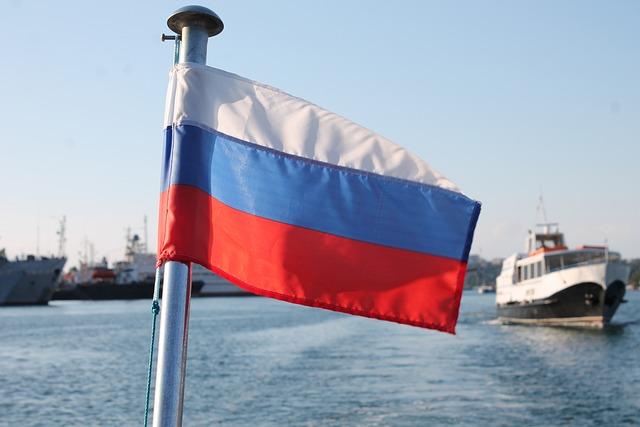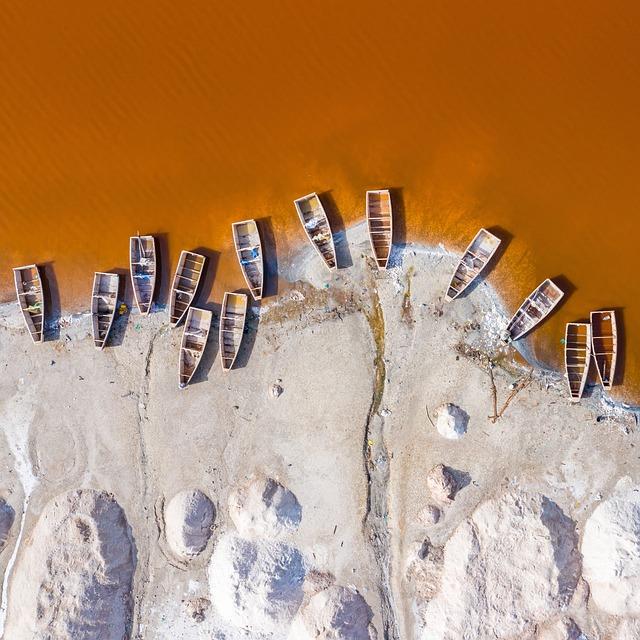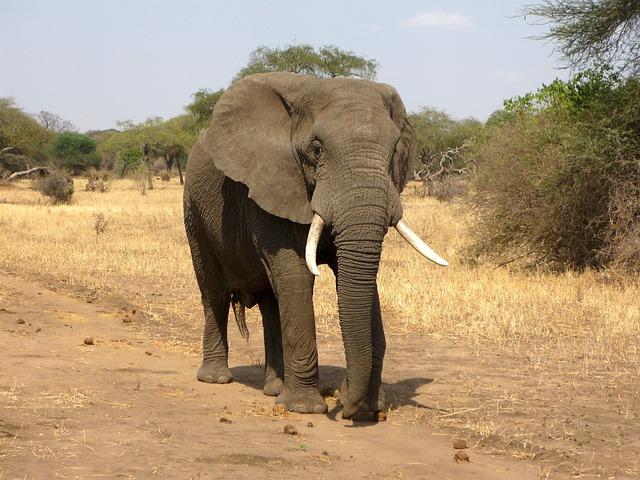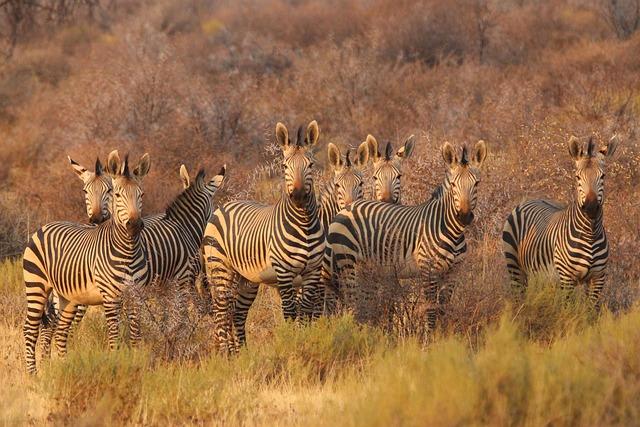Introduction
As global power dynamics shift, Africa has emerged as a focal point for competing influences, with Russia intensifying its outreach across the continent. On May 16, 2024, the Institute for the Study of War released a extensive analysis, titled “Africa File,” delving into the nuances of Russia‚Äôs growing presence in africa. This report examines Moscow’s strategic maneuvers, including military partnerships, economic investments, and diplomatic efforts, all aimed at solidifying its geopolitical foothold. Amidst a rapidly changing landscape characterized by resource competition and ideological shifts, the analysis provides critical insights into how these developments may reshape Africa‚Äôs political landscape and its relationships with other global powers. As the continent grapples with both opportunities and challenges, understanding the implications of Russia’s outreach becomes increasingly essential for policymakers and observers alike.
Russian Diplomatic Initiatives in Africa: An Overview of Recent Activities

in recent months, Russia has ramped up its diplomatic activities across the African continent, aiming to solidify partnerships that extend beyond merely economic interests. high-profile visits by Russian diplomats and leaders have sought to engage with a range of countries. Key initiatives include:
- Strengthening military cooperation through arms deals and joint training exercises.
- Expanding educational programs for African students in Russian institutions.
- Heightening cultural exchanges and promoting Russian language initiatives across African nations.
These efforts are complemented by Russia’s strategic investments in critical sectors such as energy,mining,and agriculture. Notably, negotiations surrounding resource extraction agreements have gained momentum. A recent meeting in Moscow involved leaders from countries including Angola, Mozambique, and Namibia, focusing on collaborative ventures in oil and gas development.The following table highlights some of the significant countries involved and the specific areas of collaboration:
| Country | Area of Collaboration | Recent Developments |
|---|---|---|
| Angola | Oil & Gas | New partnership agreements signed in March 2024. |
| Mozambique | Mining | Joint exploration initiatives launched in April 2024. |
| Namibia | Agriculture | Investment in agricultural technology programs confirmed. |
the Impact of Russian Presence on African Geopolitical Dynamics

The increased engagement of Russia in Africa is reshaping the continent’s geopolitical landscape, significantly affecting various aspects of international relations.Russia’s diplomatic initiatives, economic partnerships, and military alliances are being leveraged to expand its influence, particularly in nations rich in resources or strategically crucial in regional conflicts. This outreach ofen focuses on countries like Sudan,Central African Republic,and Zimbabwe,where Moscow has established stable relationships through arms sales,military training,and political support. As these countries find themselves drawn into closer ties with Russia, their traditional alliances with Western powers are frequently enough strained, leading to a realignment of geopolitical dynamics in the region.
Furthermore, Russia’s presence in Africa is fostering an environment of competition among global powers. The expansion of Russian influence can lead to heightened tensions with western nations, wich have historically dominated African geopolitics. The geopolitical ramifications include:
- Resource Control: Russia is securing energy and mineral resources through investment and partnerships.
- Military Support: Providing arms and military training to bolster regimes aligned with its interests.
- Economic Leverage: Engaging in trade agreements that favor Russian corporations over Western entities.
- Soft Power Strategies: Using cultural and educational exchanges to improve its image among African nations.
Considering these developments, a essential shift in the political dynamics of Africa is emerging, characterized by less reliance on traditional Western powers and a growing openness to choice partnerships. This shift is reflected in various high-level meetings and agreements between African leaders and Russian officials, indicating a strategic pivot that may redefine future relationships on the continent.
Evaluating Economic Partnerships: Russian Investments in Key African Sectors

in recent years, Russian investments have increasingly found their way into key sectors across the African continent, reflecting a strategic shift aimed at bolstering economic ties. These investments span a variety of industries, with a particular focus on energy, mining, and agriculture.Moscow’s efforts are not just about financial gain; they are also aimed at enhancing political influence and securing vital resources. Key benefits of these partnerships include:
- Infrastructure Development: Russian firms are involved in numerous projects to build roads, railways, and energy facilities.
- Resource Acquisition: The mining sector sees significant Russian involvement, with companies seeking precious metals and minerals.
- Food Security: agricultural investments aim to increase local production and reduce reliance on imports.
However, these partnerships are not without their challenges. Host countries often face concerns regarding regulatory compliance, environmental degradation, and the long-term sustainability of such investments. Furthermore, russia’s geopolitical positioning raises questions about the intentions behind its outreach. To better understand the balance of these economic partnerships, the following table outlines some of the recent significant russian investments in Africa by sector:
| Sector | investment Amount (USD) | Key Projects |
|---|---|---|
| Energy | 5 Billion | Oil and Gas Exploration in Angola |
| Mining | 3 Billion | Gold Mining in Sudan |
| Agriculture | 1.5 Billion | Investment in Fertilizer Production in Nigeria |
Challenges and Opportunities for African Nations in Engaging with Russia

The relationship between African nations and Russia presents a complex landscape of both challenges and opportunities. Many countries are cautious about the geopolitical implications of deepening ties with Moscow,particularly given the backdrop of ancient colonialism and current Western influence. Key challenges include:
- Dependency Risks: Increased reliance on Russian military support may limit strategic autonomy.
- Economic Vulnerability: Engagement in deals that favor russian interests could exacerbate existing economic instabilities.
- Geopolitical Tensions: Aligning closely with Russia may strain relationships with Western nations, affecting foreign aid and trade.
Despite these challenges, the engagement also opens up several opportunities for African nations that could be strategically harnessed. The potential benefits include:
- Diversification of Partners: Establishing relations with Russia can provide alternatives to Western influence in Africa.
- Investment in Infrastructure: Russia’s interest in resource-rich African nations can lead to significant investments in infrastructure and technology.
- Strengthened Security Cooperation: Collaborative efforts in security can definitely help address local conflicts and stabilize regions prone to unrest.
| Opportunity | Potential Benefit |
|---|---|
| Diversification of Partners | Reduced reliance on traditional allies |
| Investment in Infrastructure | Enhancement of transportation and energy sectors |
| Strengthened Security Cooperation | Improved regional stability and conflict resolution |
Strategic Recommendations for Western Powers in response to russian Outreach

In light of recent Russian diplomatic and military outreach across the African continent, Western powers must recalibrate their strategies to counteract potential influences that could undermine regional stability and democratic governance. The following recommendations should be prioritized:
- Enhance Diplomatic Engagement: Strengthening relationships with African nations through increased diplomatic presence and high-level visits can counterbalance Russian influence.
- Economic Investment: Boosting investments in infrastructure, technology, and education in Africa can foster goodwill and provide alternatives to Russian aid and support.
- Strengthen Multilateral Cooperation: Working through existing international institutions to promote collective security and economic development will help unify Western approaches to sub-Saharan Africa.
- Public Awareness Campaigns: Initiating campaigns to inform African nations about the long-term costs of Russian partnerships may mitigate the allure of short-term benefits offered by Moscow.
Furthermore, Western powers need to track and respond to Russian influence operations meticulously.
| Type of Outreach | Potential Impact | Recommended Response |
|---|---|---|
| Military Cooperation | Increased regional instability | Enhance security training programs for local forces |
| Resource Extraction Deals | Undermining local economies | support sustainable development projects |
| Political Alliances | Support for authoritarian regimes | Promote human rights and democratic governance |
Future Trends: What Lies Ahead for Russia-Africa Relations in 2024 and Beyond

As we look towards 2024 and beyond, the dynamics of Russia-Africa relations are anticipated to evolve significantly, driven by a blend of pragmatic interests and geopolitical strategies. Key areas of focus may include:
- Economic Partnerships: Strengthening trade agreements to enhance resource extraction and agricultural collaborations.
- Military Cooperation: Increasing arms sales and joint military exercises aimed at boosting regional security amid rising threats.
- Influence in International Organizations: Expanding Russia’s presence in bodies such as the African union to gain support for its global initiatives.
Notably, the role of private military contractors and energy firms is highly likely to be more prominent, carving a niche for Russia in the intricate landscape of African economies. Projected trends include:
- Increased Diplomatic Engagements: More frequent high-level visits by Russian officials to African nations.
- Investment in Infrastructure: Expanding projects in logistics and energy sectors, especially in sub-Saharan Africa.
- Cultural and Educational Exchanges: Promoting Russian language and educational programs to foster goodwill and long-term partnerships.
Insights and Conclusions
the developments outlined in the “Africa File, May 16, 2024,” highlight a significant shift in the geopolitical landscape as Russia intensifies its outreach across the African continent.The strategies employed, ranging from military partnerships to economic investments, reflect a broader ambition to establish influence and counter Western hegemony in the region. As African nations navigate these complex dynamics,the implications of Russian engagement will be multifaceted,potentially reshaping alliances and altering the trajectory of regional power structures. The Institute for the Study of War emphasizes the need for continued monitoring of these interactions, as they promise to impact not only Africa but also global stability in the years to come. The evolving narrative of Russia’s role in africa will undoubtedly demand further scrutiny as stakeholders on all sides reassess their positions in this rapidly changing environment.







